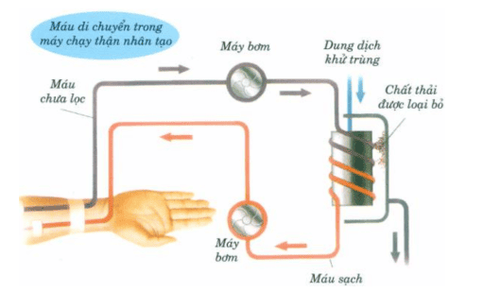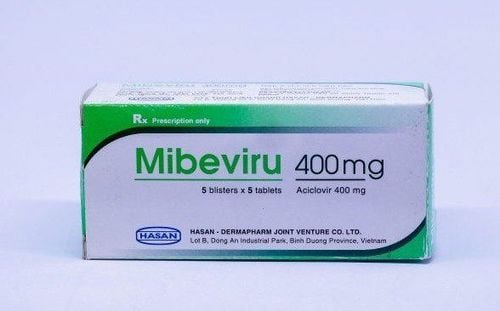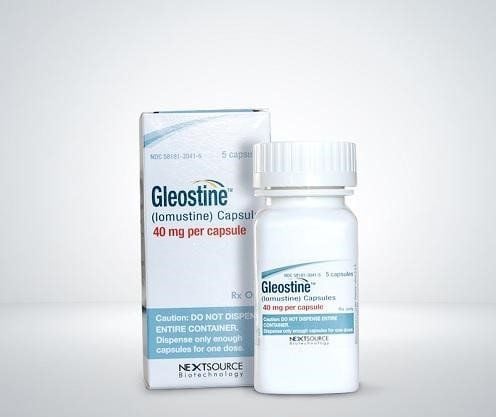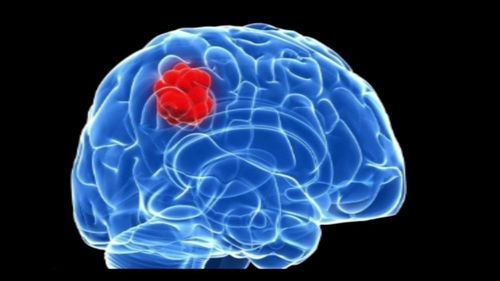This is an automatically translated article.
The article was written by BSCK II Khuc Thi Nhen, Department of Medical Examination - Vinmec Times City International General HospitalAutoimmune encephalitis is a rare type of acute encephalitis, a disease caused by the body's own immune system producing antibodies against the Glutamate receptors in the brain (NMDA-N methyl D aspartate). NMDA receptors are proteins that transmit nerve impulses involved in memory, language, and autonomic nerves (heart rate, breathing rate).
1. What are antibodies?
Antibodies are an important component of the body's defense system. All healthy people make antibodies to fight viruses, bacteria, and tumors. Normally, the body does not produce antibodies against the body's own cells. In rare cases, the body produces antibodies that attack its own cells leading to a condition known as "autoimmune".

Kháng thể có vai trò miễn dịch trong cơ thể con người
2. What is autoimmune encephalitis?
Anti-NMDA receptor encephalitis may be associated with a tumor, usually a teratoma, of the ovary (this tumor may contain many different types of body tissue including brain tissue). In men, testicular tumors may occur. Other tumor types that have been implicated in NMDA receptor encephalitis include lung cancer, tumors of the thyroid gland, breast cancer, colon cancer, and neuroblastoma.
The role of tumors in the development of NMDA receptor antibody encephalitis is not fully understood. However, all tumors associated with anti-NMDA receptor encephalitis contain neural tissue (tissue containing cells identical to those found in the brain) and NMDA receptors. It is thought that antibodies are initially formed against NMDA receptors present in tumors and then they attack similar-looking receptors in the brain, producing symptoms and signs associated with inflammation. brain anti-NMDA receptor antibodies.
If a tumor is found, removal of the tumor is an important part of the treatment of anti-NMDA receptor antibody encephalitis. Patients who had their tumors removed recovered more quickly and were less likely to have a recurrence than patients whose tumors were not found. All patients with suspected NMDA receptor encephalitis should be screened for the presence of a tumor. Imaging (computed tomography or magnetic resonance imaging) of the chest, abdomen, and pelvis should be performed.... In women, an ultrasound of the ovaries should also be performed, and in men an ultrasound of the testes should be performed. Even after resection, tumors can recur. Therefore, people with anti-NMDA receptor encephalitis should be tested periodically for the presence (or recurrence) of tumors. .

Ung thư vú có mối liên quan đến viêm não kháng thể thụ thể NMDA
In many people with encephalitis anti-NMDA receptor antibodies do not find a tumor (either because the tumor is too small to be detected by imaging or the tumor has been destroyed by the immune system or does not exist). tumor), is thought to be of unknown cause.
3. What are the main symptoms of autoimmune encephalitis?
Flu-like symptoms; Memory impairment, including short-term memory loss; Difficulty sleeping; Speech impairment - the patient is no longer able to produce coherent language or may not be able to communicate at all; Cognitive or behavioral disturbances - confused thoughts, hallucinations, delusional thoughts; Seizures; Movement disorders - usually of the hands and feet, mouth and tongue, but may include generalized spasms. These movement patterns are very common in anti-NMDA receptor encephalitis, and patients cannot control them. Consciousness disturbances; Autonomic dysfunction - erratic breathing, heart rate and blood pressure; loss of bladder and bowel control; Central hypoventilation - the patient may stop breathing and require mechanical ventilation; Vision and/or hearing may also be affected.

Viêm não tự miễn gây ra tình trạng khó ngủ
The vast majority of patients experience a combination of the above symptoms and signs. These symptoms may fluctuate over the course of the disease. In rare cases (>5%), the only symptoms of anti-NMDA receptor encephalitis are psychiatric symptoms (hallucinations, mood disturbances, delirium).
Many authors think that, at the onset of the disease, with flu-like symptoms, is it possible that a virus or bacteria is the cause or contributes to the formation of anti-NMDA receptor antibody encephalitis? On this issue up to now, the authors have not found a satisfactory answer.
4. Who is affected by this disease?
The majority of cases occur in adults and children, although some cases have been diagnosed in people over 80 years of age. Women are four times more likely to be affected than men.

Phụ nữ là đối tượng dễ bị viêm não tự miễn
5. What tests can diagnose anti-MNDA receptor encephalitis?
Diagnosis of NMDA receptor antibody encephalitis is the diagnosis of the presence of antibodies in the body fluids of a person whose symptoms correspond to anti-NMDA receptor antibody encephalitis. Antibodies can be found in the blood or in the cerebrospinal fluid. Tests that use cerebrospinal fluid are more accurate than blood tests. Therefore, if the blood test is negative, the cerebrospinal fluid should be tested before concluding that the patient does not have anti-NMDA receptor encephalitis. Cranial magnetic resonance can show bilateral temporal lobe lesions. In addition, other functional exploratory tests such as low-dose computed tomography (CT) of the lungs exclude lung tumors; Ultrasound of the breast, abdomen, urinary system... is very important in detecting tumors.
6. What is the treatment method?
Patients diagnosed with anti-NMDA receptor encephalitis should be hospitalized for treatment. In severe cases, intubation and mechanical ventilation may be required. Treatment includes corticosteroids ("steroids"), intravenous immunoglobin (antibodies from healthy blood donors), and hemodialysis (filters antibodies from the patient's blood).
Sometimes stronger drugs must be used to remove antibodies. The drugs most commonly used to treat encephalitis caused by anti-NMDA receptor antibodies are rituximab (Rituxin®) and cyclophosphamide 9 (Cytoxin®).
Medications to treat symptoms include medications to control blood pressure, anticonvulsants, reduce anxiety, improve sleep, and treat hallucinations or unusual behavior.

Lọc máu là một phương pháp điều trị bệnh viêm não tự miễn
7. What is the prognosis of the disease?
Although anti-NMDA receptor encephalitis is a life-threatening disease, most patients with timely diagnosis and treatment recover well.
Illnesses that can lead to death from cardiac arrest or infections from prolonged lying down or side effects of medications.
Recovery is often slow and can take months or even years.
Relapse may occur in 14 to 25% of patients. There is no test to predict which patients will relapse, but research shows a higher chance of recurrence in patients with no tumor found, as well as in those who do not receive supportive treatment. (immunosuppressive drugs in the initial episode) therefore immunosuppressants may be recommended for a long time (even after recovery) to prevent relapse.
When it comes back, the symptoms are the same as the first - although the symptoms may be less severe, they may not occur at the same time, or they may not occur in the same order as the first time.
When there are signs of autoimmune encephalitis, you should go to a reputable medical facility for early examination and treatment, to avoid long-term treatment difficulties and many dangerous complications. Vinmec International General Hospital is a high-quality medical facility in Vietnam with a team of highly qualified medical professionals, well-trained, domestic and foreign, and experienced.
A system of modern and advanced medical equipment, possessing many of the best machines in the world, helping to detect many difficult and dangerous diseases in a short time, supporting the diagnosis and treatment of doctors the most effective. The hospital space is designed according to 5-star hotel standards, giving patients comfort, friendliness and peace of mind.
Please dial HOTLINE for more information or register for an appointment HERE. Download MyVinmec app to make appointments faster and to manage your bookings easily.
References:
Vinmec Hospital. 2. Graus et al. A clinical approach to diagnosis of autoimmune encephalitis. Lancet Neurol, 2016;15:391-404.













